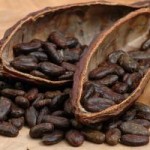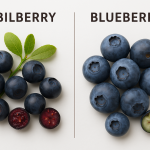A reader recently asked “what exactly is resveratrol” on Twitter and these are a variety of the answers other Twitter users chimed in with:
- Resveratrol is an antibiotic produced naturally by several plants when under attack by pathogens such as bacteria or fungi.
- Resveratrol has also been produced by chemical synthesis and is sold as a nutritional supplement derived primarily from Japanese knotweed but also from red grape skin and seeds.
- Resveratrol has been shown at times to extend the life span of mice. In mouse and rat experiments, anti-cancer, anti-inflammatory, blood-sugar-lowering, chelating and other beneficial cardiovascular effects of resveratrol have been reported.
- Resveratrol is a constituent of red wine and is found in many red and purple berries and in peanuts.

The reference to “antibiotic” isn’t quite accurate, but it is a good simile. Plants produce resveratrol as a way to fight off diseases, pests, blight and other problems. That’s actually the reason organic produce is healthier than traditional produce. It’s not that the plants are free of harmful chemicals, which is good, it’s that the plants are forced to fend for themselves and thus produce more antioxidants like resveratrol.
The part about resveratrol being a constiuent of red wine is correct, but is also the most obvious answer. That’s a little bit like saying the place you’re most likely to find a school bus is near a school. Red wine is what put “resveratrol” on the map. But what is often missed is what makes red wine so special.
Oxygen is the breath of life, right? Well, it’s also the breath of death. Oxygen oxidizes . . causes rust, and is the end of many things. One of those things is antioxidants. Once oxygen comes in contact with an antioxidant, it is largely useless to us. In fact an oxidized antioxidant provides zero value to people.
Going back to red wine . . . Would you agree that a grape skin is tougher than a strawberry skin? Can you even say strawberries have a skin? That toughness completely shrouds the inside of a grape from oxygen. Then when a grape is picked and put into a vat to be crushed it also evades oxygen. Then when it is fermented in a cask it is shielded from oxygen. Then when it is poured into a bottle and corked oxygen comes in contact with it for the briefest moment.
That means when red wine touches your lips, the antioxidants are nearly 100% potent. The resveratrol is in full force and can provide the greatest benefit.

